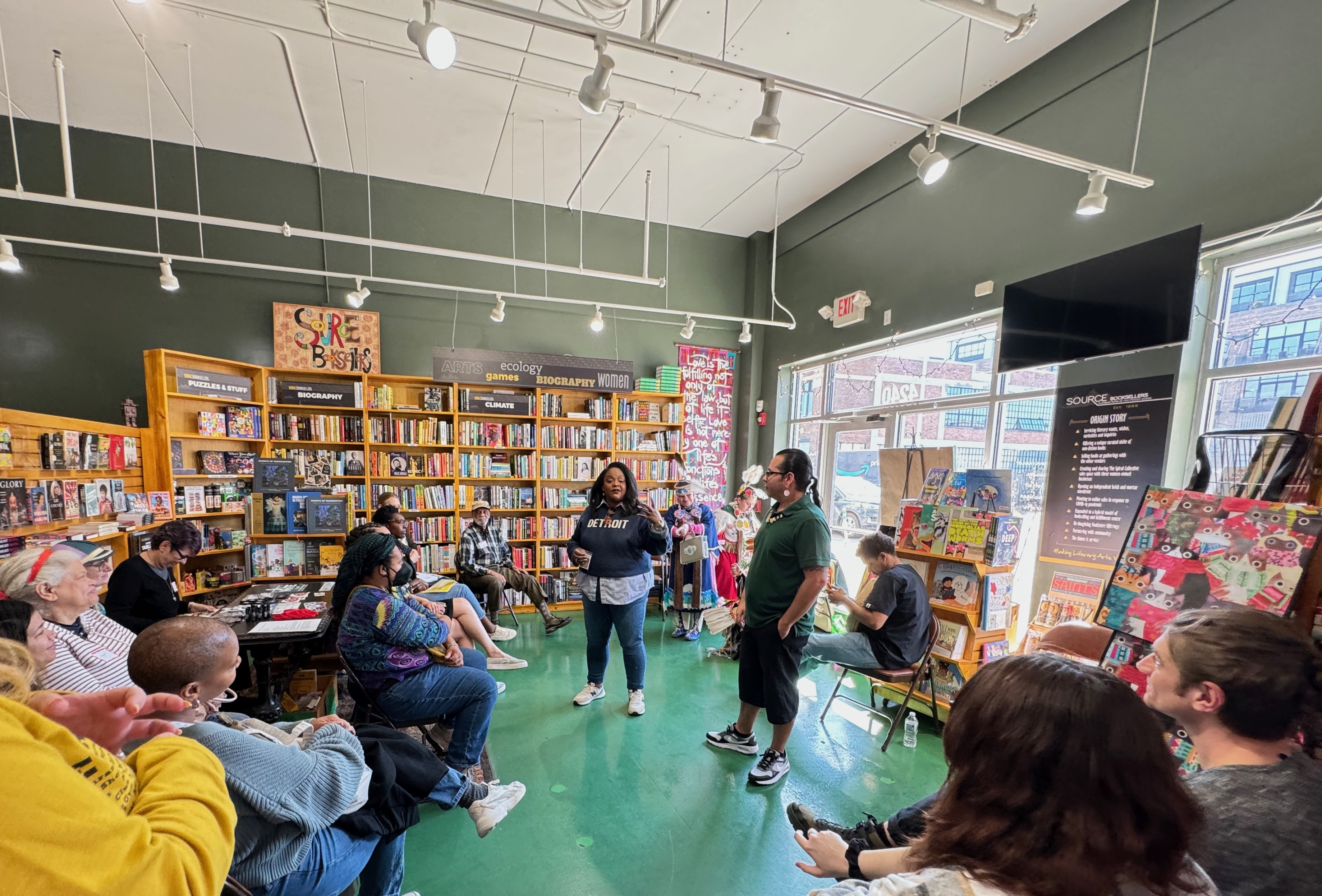How Detroit Documenters benefit residents and Outlier’s reporting
Detroit Documenters attend public meetings and take notes on what politicians say, when they said it and who they said it to. We share Documenters notes, live tweets, transcripts, recordings, meeting agendas, presentation packets and other documents with the public for free by publishing them to detroit.documenters.org. This gives everyone access to a record of what Detroiters say they need and want as well as how people in power respond to those they are expected to serve.
See our answers to frequently asked questions regarding how we make editorial decisions about democracy coverage in Detroit.
Wayne State University’s Board of Governors will meet on Wednesday, the first time since April 26, when the board ordered security to remove pro-Palestinian protesters who interrupted the meeting. The elected board of Michigan’s third-largest public university has chosen not to hold a public meeting at all this time, but instead meet online and livestream the proceedings.
The shift to a virtual meeting allows the board to limit participation. The rules for public comment require requests to be made not more than seven days before the meeting, but at least 48 hours before it. All requests to speak must be approved by the board.
Retreating from the public
The board faces a university community that likely wants to engage on several contentious issues. This is the first Board of Governors meeting since President Kimberly Andrews Espy, in consultation with the board, ordered university police to dismantle a pro-Palestinian student encampment and arrest protesters.
Several faculty and staff condemned the raid, along with faith leaders who planned to present an open letter to the board, but will now have to do so electronically.
The Wayne Academic Union (WAU) is also in the middle of bargaining with administrators for a new contract. The union represents around 1,700 faculty and staff, and is organizing a rally for a fair contract at 2 p.m. on Wayne State’s campus, followed by a “People’s BoG” at the undergraduate library where organizers will stream the online Board of Governors meeting for students and members of the public.
WAU Vice President Kess Ballentine told Outlier she is concerned by the board both switching the meeting to virtual, and moving public comment to the end of the agenda — after all decisions have been made. “To me, this is a double switch,” Ballentine said, calling it “two steps away from where we were.”
The university’s Associate Director of Communications Bill Roose told WDET earlier this week that the formats and locations of the meetings are at the discretion of the Board of Governors.
Allowable by law
The board is not subject to Michigan’s Open Meetings Act (OMA), which would otherwise prohibit it from meeting only virtually.
All universities in Michigan abided by the OMA after it was passed in 1976 until 1999. That year, the Michigan Supreme Court ruled that public university governing boards are not always subject to the act. Since then, public universities across the state have had wide latitude to decide which of their meetings will be held in public.
The Board of Governors own bylaws say formal meetings of the board and its committees shall be open to the public. The Michigan State Constitution requires the same for all formal sessions of public university governing boards. But an appeals court ruling in 2016 found that each school’s governing body “is empowered to define what constitutes a formal session.”
In 2023, Michigan State Sen. Ed McBroom (R-Vulcan) authored a resolution amending the state Constitution to strike the words “formal sessions” and replace them with the word “meetings.” If placed on the ballot and approved by Michigan voters, the resolution would mandate all public university board meetings be open to the public. The resolution was referred to the Senate Oversight Committee last year, where it remains.




